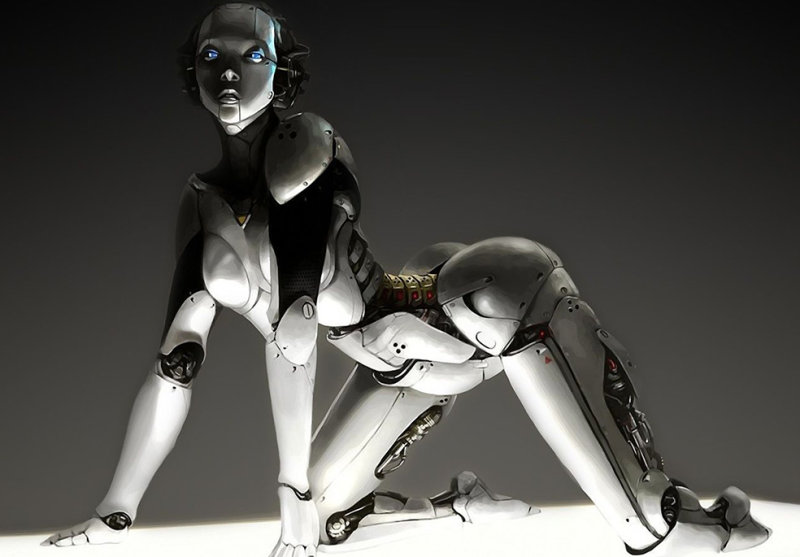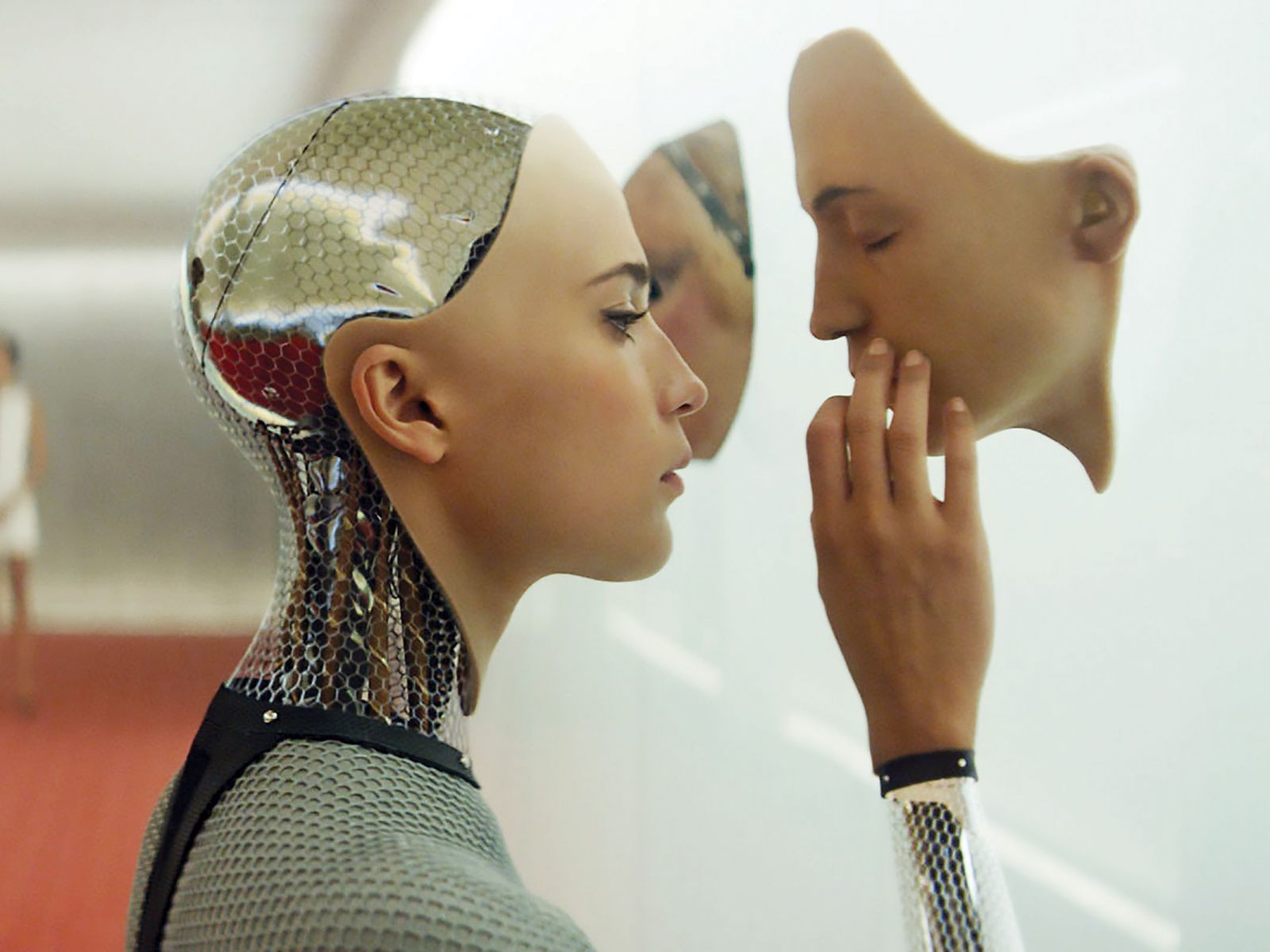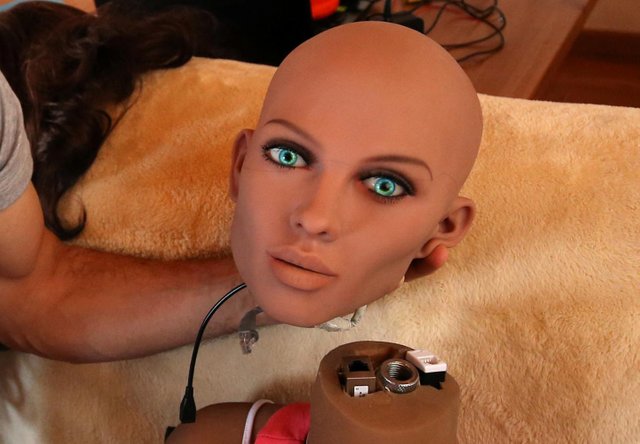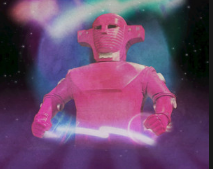
What used to be dolls will soon be sex humanoid robots. At some point in the next few years the sex market will be massified by that first statement that we still perceive as distant. Precisely for this reason, researchers are raising frontiers before having problems.
At bottom, the debate about sex with robots is an evolution to the debate and the stigma that existed in the twentieth century with dolls. Perhaps with a big difference: everything points out that what is to come are artificial bodies so similar to the human being that it will be difficult to perceive the "real" of "plastic".
Let's think about the sex dolls. That was an invention of the Nazis in World War II. The idea was that the dolls would stop the massive spread of diseases of French prostitutes. Since then, the "evolutionary" leap has been so great that we could say that we speak of different things.

The empire created by Matt McMullen is a good example. The man is in Pole to be erected as the messiah of sex with machines. He is the founder of RealDolls, possibly the largest or one of the largest objects of sexual luxury, the most exclusive for its price. These are very human a la carte dolls that lack one last detail in which they are currently working. Give them movements and answers.
Its more advanced prototype will be called Harmony and assure that it will be a robot that can move the eyes and speak. All this through a tablet connected to an application of the owner / user.
However, McMullen knows that the empire he has created can come down if he gets his sophisticated dolls too real. Surprise and perfection can then give way to disgust or repulsion, to the fear of recognizing an object that looks too much like you. Let's see what the studies say.
Sex, robots and rules

Several months ago we remembered the Restless Valley theory formulated by the professor and expert in robotics, Masahiro Mori. The professor has argued for decades that as simulations in appearance and / or movement of human beings is increasingly accurate and realistic, there will be a point where the interest of human beings in creating a humanoid becomes absolute repulsion.
I suppose that first of all it will touch a journey of experimentation. In the year 2015 an academic article was published led by Kathleen Richardson, researcher on ethics and robotics in the University of Montfort. The woman felt that the industry is spreading the problem of prostitution to machines, and that this is neither ethical nor safe. The paper argued that these three points will be a difficult barrier to overcome:
• Sex with robots dehumanizes women
• The view we have of sex robots resembles the prostitute-client exchange, which consists of recognizing only the needs and desires of the sex shopper (while the seller lacks subjectivity and is only an object)
• The production of sex robots shows the horrors still present in the world of prostitution, built on the perception that women are inferior beings (which justifies that they can be used as sexual objects)

Noel Sharkey, a robotics and AI professor at the University of Sheffield, said these days that we should not turn our backs on such uncomfortable questions as the following: "Shall we ban the import of sex robots designed to look like children?"
The researcher published this month a work under the title Our Sexual Future With Robots, a report where he talks about his concerns about the phenomenon that is beginning and the impact that will have on the human being .
The teacher stirs up a scenario that we have seen in literature and in movies, and that perhaps for that, it has always seemed far away. Sharkey points out some of the likely uses that sex robots may have:
• Robots prostitutes working in brothels.
• New types of "sexual cure".
• Sexual partners for people who feel alone or elderly.
• As a sex therapist tool for rapists and pedophiles.

Precisely the last point, that of pedophilia, is the one that seems most problematic. The childlike dolls already exist, and countries like Canada are determining whether or not they should be illegal. According to Kathleen Richardson, an expert in robotic ethics at the University of Montfort (UK):
""I think Sharkey is right about the ban on childlike sex dolls. However, the real problem is not the dolls, but the sex trade. Sex robots are just another type of pornography. Such robots will inevitably increase social isolation.""
For Richardson there is a problem of focusing on the work of the teacher: we are practically talking about a market centered on the man, there is hardly a female market, and therefore, it is not a problem of genres.
Be that as it may, it seems that the approach to the latest work differs from Asimov's proposal. After all, we may not need rules for machines. Perhaps, when sexual robots are so similar to us, we need rules for ourselves.
Like, comment and follow me
^_^
Downvoting a post can decrease pending rewards and make it less visible. Common reasons:
Submit
I only want a robot partner, that would be ideal!

Downvoting a post can decrease pending rewards and make it less visible. Common reasons:
Submit